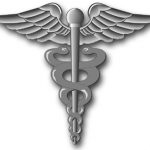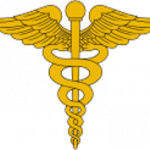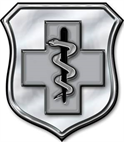


Very likely it has never been considered a particularly glamorous job for an enlisted solider, sailor, or airman, but the public health and preventive medical corps have had their part to play from the very beginning. In fact, one of George Washington’s first actions after his appointment as command-in-chief of the revolutionary army was to write Congress asking them to establish a “Hospital” for the army (by which he meant a military medical service). In particular, communicable disease was very much on his mind:
I have been particularly attentive to the least Symptoms of the small Pox and hitherto we have been so fortunate, as to have every Person removed so soon, as not only to prevent any Communication, but any Alarm or Apprehension it might give in the Camp. We shall continue the utmost Vigilance against this most dangerous Enemy.
Washington was writing this about 20 years before Jenner came up with his smallpox vaccine, but well before Jenner an inoculation technique called variolation had been used. The idea was to take a scab from a recent smallpox victim, rub into into scratches on the person to be inoculated, and hope that the resulting case would be mild. Often it was, but there was also a big risk when applying variolation to an army: triggering an epidemic. Nonetheless, in 1777 Washington took a gamble and inoculated all of his troops while camped in Morristown. It worked.
We have better tools nowadays, of course, but the specter of disease killing more soldiers than bullets remains with us always.
Some of the techniques for avoiding disease are simple yet effective. A medical degree may get you an instant commission as an officer, but we should never forget the enlisted medical staff working in public health and sanitation. A sawbones can put you back together, but the humble hospital corpsman ensuring cleanliness may well save more lives.
COVID-19 is not a war, but we nonetheless should listen to what the medical corpsmen and corpswomen are no doubt saying every day: Wash your hands. Wear your mask.
A reading list for today:
- The Evolution of Preventive Medicine in the United States Army, 1607-1939
- Pale Rider: The Spanish Flu of 1918 and How It Changed the World by Laura Spinney.
- Bacteria and Bayonets: The Impact of Disease in American Military History by David Petriello
- The Army Medical Department 1775-1818 by Mary C. Gillett








